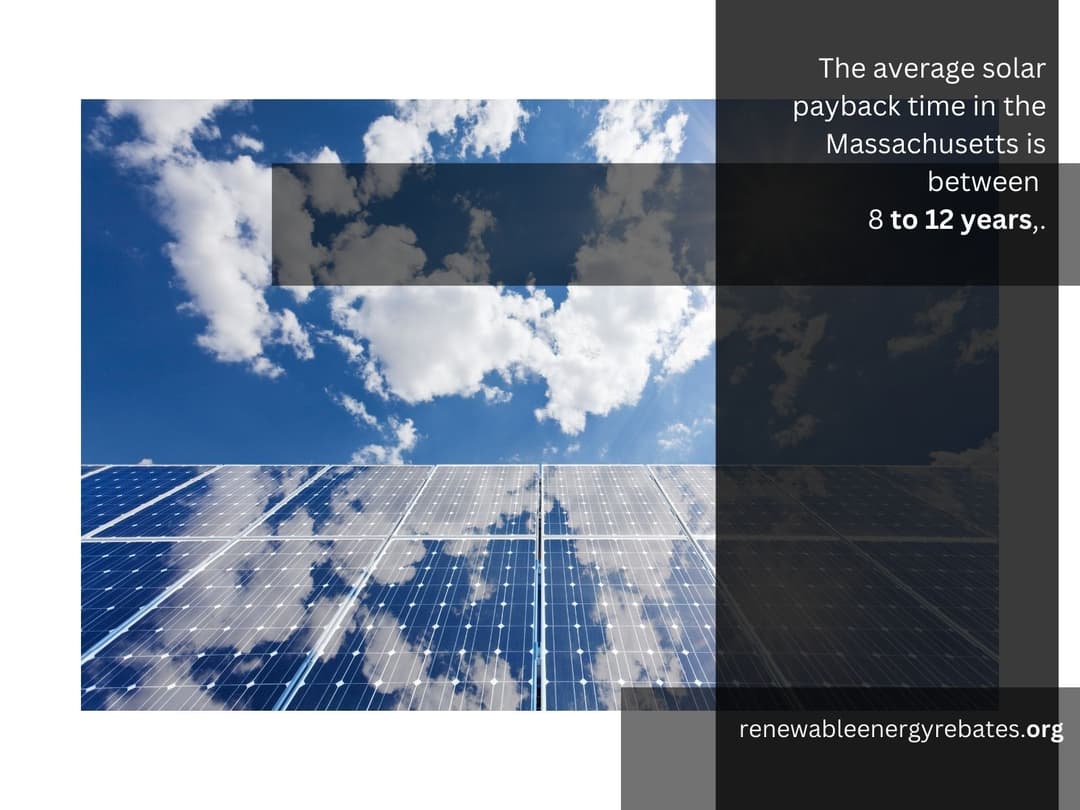Solar Panel Installations in Plymouth County, MA
Installing Solar Panels in Plymouth County, Massachusetts: Costs, Incentives & More
Key Details
- The average price of Solar Panels in Plymouth County, Massachusetts, ranges from $3.5 to $6.5 per watt, with an average gross system cost of $17,350 for 5 kilowatts.
- The net cost of going solar is reduced by the 30% Federal Investment Tax Credit and additional state and municipal solar incentives.
- Solar Panels typically pay for themselves in five to nine years.
- Massachusetts offers incentives to increase the adoption of solar, including the Federal Tax Credit (ITC), Solar Mass Renewable Target (SMART) program, and the Mass Solar Loan Program.
- Professional assistance is recommended when installing panels.
How Much Do Solar Panels Cost In Plymouth County, MA?
In Plymouth County, Massachusetts, the average price of solar panels ranges from $3.5 to $6.5 per watt. The average gross price for solar is $17,350, with a range of $14,748 to $19,952 for a system that generates 5 kilowatts (kW).

The net cost of going solar reduces after you factor in the 30% federal investment tax credit (ITC) and additional state and municipal solar incentives.
| Energy System Size | Solar Panel Cost | Cost After Credit |
| 3KW | $10,410 | $7,703 |
| 4KW | $13,880 | $10,271 |
| 5KW | $17,350 | $12,839 |
| 6KW | $20,820 | $15,407 |
| 7KW | $24,290 | $17,975 |
| 8KW | $27,760 | $20,542 |
How Long Does It Take For Solar Panels To Pay For Themselves In Plymouth County?
The typical payback period for solar panels is about five to nine years. The initial cost of your system and the amount of power it provides will determine how long it will take to recoup your investment. The more energy your system produces, the quicker it will pay for itself.

What Are the Incentives for Solar Energy in Plymouth County, Massachusetts?
Federal Solar Investment Tax Credit (ITC)
The Federal Solar Investment Tax Credit (ITC)) (also known as the Residential Clean Energy Credit for residential systems) is the go-to tax incentive for new solar installations. Until December 31, 2032, owners of PV solar energy systems can claim a tax credit that amounts to 30% of the installation cost.
Note: The ITC only applies to those who fully pay for their PV system (either with cash or a solar loan).
SMART (Solar Massachusetts Renewable Target) Program
Under the SMART program, Massachusetts offers a fixed rate per kilowatt hour (kWh) of solar energy produced to Eversource, National Grid, and Unitil customers for ten years.
The cost per kilowatt-hour (kWh) for systems under 25 kW varies from 19 cents to 31 cents, depending on the utility and the area.
Implemented in late 2018 by the Massachusetts Department of Energy Resources (DOER), the initiative directly compensates solar panel owners for any electricity generated by their systems for ten years.
Massachusetts Net Metering Program
Net metering is a system that allows homes and businesses with renewable energy sources like solar panels to get paid for any surplus electricity sent to the local grid.
If your home is unoccupied during the mid-afternoon, when solar power generation is at its height, you're probably wasting some energy your system generates.
With net metering, homeowners who install solar panels on their roofs and provide energy to the local power grid benefit from the same rate they pay when using the grid.
Mass Solar Loan Program,
The Mass Solar Loan Program is a solar financing scheme developed by the Massachusetts Department of Energy Resources and the Massachusetts Clean Energy Center to encourage the purchase of solar energy systems by Massachusetts homeowners rather than leasing them. Only those planning to buy a solar system can apply for these solar loans as it is not available to solar leasers.
How Can I Sell Solar Energy In Plymouth County, Massachusetts?
Selling your solar energy in Plymouth County, Massachusetts, can be done with Net Metering. With this system, buildings that use renewable energy sources, such as solar panels, can be compensated for the electricity they generate but don't use.
Net metering customers can transfer energy back to their electric company in exchange for a credit to balance their energy use. Solar panels on a residence or a wind turbine at a farm are typical examples of net metering facilities. These facilities are linked to a meter that calculates your net electricity consumption.
Your meter advances when you utilize the electric power supplied by the utility. However, it spins backward when you generate your electricity and "export" it to the electric grid.
When using wind, solar, or anaerobic digestion technology for your net metering facility, it must either; generate less than or equal to 2 megawatts (MW) for a private facility or generate lesser than or equal to 10 MW for a public facility.
Do You Need A Handyman Or A Solar Installer In Plymouth County?
The United States Office of Energy Efficiency and Renewable Energy recommends that property owners seek the assistance of a trained professional for electrical installations. Consider hiring a professional or installation company that's been certified by an organization such as The North American Board of Certified Energy Practitioners (NABCEP).
Do Solar Panels Increase A Home Value In Plymouth County?
Yes, Solar panels increase the value of a home in Plymouth County, Massachusetts. One study revealed a $5,911 gain in value for every kilowatt of solar panels added, and another study projected a 4.1% rise in value due to solar installations.
A $1 decrease in monthly utility costs can significantly impact your monthly budget, with some experts estimating a $20 gain in property value for every $1 saved. Saving even $400 per year on electricity costs thanks to your solar energy system might result in an increase of $8,000 to the value of your property.
Are Solar Panels Exempt From Property Taxes In Plymouth County?
Solar panels are exempt from property taxes in Plymouth County, Massachusetts. While solar panels boost your home's value, they do not increase your property taxes.
This is part of Massachusetts's 20-year incentive program that provides a 100% property tax exemption.
Also, since solar photovoltaic panels and inverters are both components of renewable energy sources, they are free from the sales tax that is typically required to be paid on things used in the home.